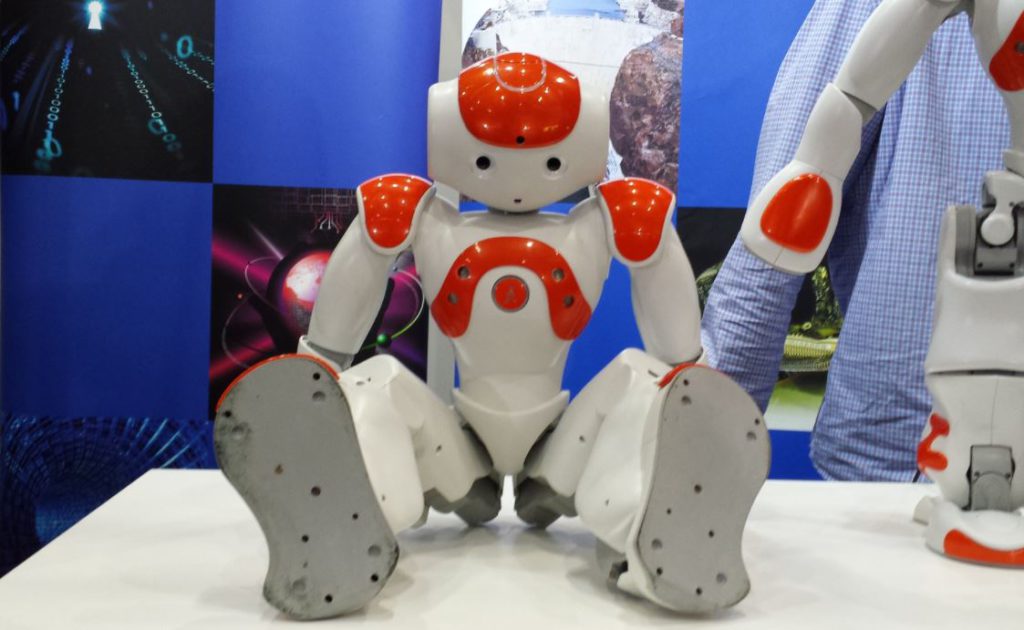How X Files studies give students the X Factor
Robotics and AI UOM life 3rd October 2018
How long will it take to find a job after graduating university – and are we alone in the universe? Two huge questions that no doubt every student asks – and we may have the answers!
The University College for Interdisciplinary Learning (UCIL) is offering undergraduates the chance to learn different skills and disciplines to complement their degree programme and make them more employable. And as an added bonus, you have the chance to ask and maybe even answer the fundamental question: are we alone in the universe?
Not interested in little green men? What about robots? Is the thought of a robot stealing your future job keeping you up at night? Or perhaps you’re terrified of ending up in an egg-shaped pod where you serve as part of a power plant for an all-powerful cyber overlord.
Well UCIL is also offering undergraduates the chance to weigh up whether artificial intelligence will ultimately be our friend or foe. And far from a robot stealing your job, studying this unit will equip you with skills that boost your employability and make you stand out from the crowd.
Big questions

The aim of UCIL is to introduce students to new ways of thinking so they can tackle the key questions that face our 21st century society. The units are taught by academics from across The University of Manchester, ands slot into undergraduate timetables. They are also free of charge.
There are plenty of units to choose from, from courses designed to boost your confidence when communicating or to learn a new language, to a course dedicated to the animation and visual culture of post-War Japan. And then there are the two brand new courses: ‘Are We Alone? The Search for Extra-terrestrial Life’ and ‘AI: Robot Overlord, Replacement or Colleague?’.
Are we alone?

Astrophysicist Professor Mike Garrett is interested in far more than just stars and planets when he looks up at the night sky. The Director of Jodrell Bank Centre for Astrophysics says: “It was Arthur C. Clarke who said ‘two possibilities exist: either we are alone in the Universe or we are not. Both are equally terrifying!’ … and I tend to agree.”
Prof Garrett adds: “If we are truly alone, does this mean that we are in some way special? If there are other civilisations out there, do they look and think like us?”
It’s this thinking that’s behind the new UCIL unit. Rather than being wholly rooted in science, the course will consider the biological and social factors that play a part in the human search for life on other planets. And if alien life was discovered, what would the implications be for Earth’s culture, society, economy and politics?
What makes this course unique is that the social and cultural considerations of astrobiology – extra-terrestrial life – are treated with equal weight to the scientific considerations.
Included in the unit will be an overview of the latest developments from the Search for Extra-terrestrial Intelligence (SETI) project – so if E.T. makes contact, you’ll know about it. Of course, you may end up subscribing to the Rare Earth Hypothesis – the theory that the combination of events and circumstances that led to the evolution of intelligent life is so mind-bogglingly specific that the chances of it happening anywhere else are close to impossible.
Fascinating stuff, but if your name’s not Agent Mulder, how can this improve your employability (unless you’re in training to be one of the Men In Black)? Well one important thing the unit will provide is the experience of approaching a big topic from a variety of angles – something that will come in useful no matter what line of work you hope to pursue. By taking a multi-disciplinary approach, undergraduates will be challenged to get out of the comfort zone of their degree subject and see how other disciplines contribute.
(Optimus) Prime candidate

A range of skills not only helps you stand out to employers, but could also future-proof your career path. A report last year from McKinsey & Company predicted that 30 per cent of the world’s workforce will have lost their jobs to computers by 2030. Luckily, the other new UCIL unit ‘AI: Robot Overlord, Replacement or Colleague?’ takes a more optimistic view of our robot companions.
Dr Caroline Jay, Senior Lecturer in Computer Science, says: “We want Manchester graduates to be able to use AI as a tool in their profession, and contribute to ensuring it addresses the challenges of the future, whatever their area of work.”
She adds: “The whole point of universities is to equip people with the skills to learn. Students are not just here to learn a set of facts, but to learn how things change, evolve and how they can fit into that future.”
The truth is out there – and thanks to UCIL, our students will be the first to find it.
Words – Hayley Cox
Images – Beckie
AIartificial intelligenceComputer Scienceextra-terrestrialJodrell BankPhysics and AstronomyRobotsSpaceUCIL




